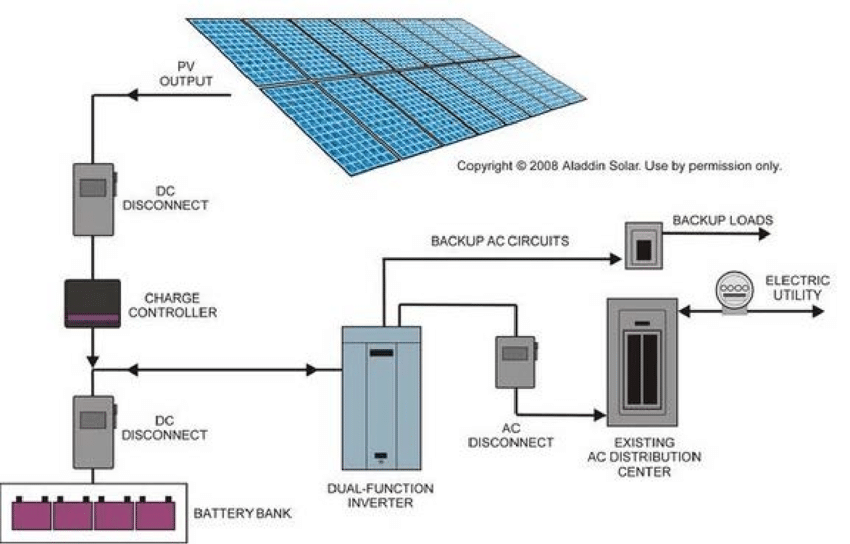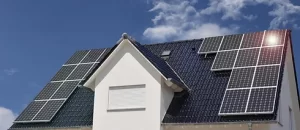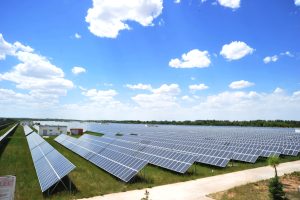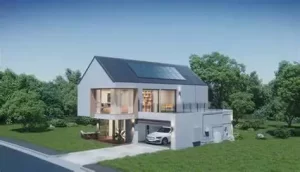Unlocking Solar Potential: The Role of Grid-Tied Inverters in Home Energy Systems
The global shift towards renewable energy has made solar power systems an increasingly popular choice for homeowners seeking to reduce their carbon footprint and energy bills. At the heart of these systems are photovoltaic cells, commonly known as solar panels, which harness the sun’s energy and convert it into direct current (DC) electricity. However, for this energy to be usable by our homes and appliances, it must be transformed into alternating current (AC) electricity. This is where grid-tie inverters come in, playing a pivotal role in the modern home energy system.
The Necessity of Inverters Inverters are the unsung heroes of solar energy systems, bridging the gap between the DC electricity generated by solar panels and the AC electricity that powers our homes. They are essential components that not only convert the electricity but also ensure it is delivered efficiently and safely.
Grid-Tied Inverters: The Link to the Grid Grid-tie inverters are designed to integrate solar power systems with the utility grid, allowing for a seamless flow of electricity. When the sun is shining, these inverters convert the DC power from solar panels into AC power and feed it into the grid. This process enables homeowners to use the electricity generated during the day and, through net metering, even earn credits for any surplus energy they send back to the grid.

Advantages of Grid-Tied Inverters One of the significant advantages of grid-tie inverters is their cost-effectiveness. By eliminating the need for expensive battery storage systems, these inverters reduce the overall installation and maintenance costs associated with solar power systems. Additionally, their compatibility with net metering programs provides homeowners with financial incentives, making solar power an economically viable option.
Limitations and Considerations Despite their benefits, grid-tie inverters do have limitations. They are dependent on the grid, shutting down during outages to prevent feedback into the power lines, which could endanger line workers. This means that during a power cut, a grid-tied solar system cannot provide backup power to the home.
Grid-Interactive Inverters: A Step Beyond For those seeking greater energy independence, grid-interactive inverters offer a solution. Also known as hybrid inverters, these devices can operate in both grid-connected and stand-alone modes, providing backup power during outages and allowing for the storage of excess energy in battery systems.
Conclusion In conclusion, grid-tie inverters are crucial for unlocking the full potential of solar power systems in home energy systems. They not only facilitate the conversion of DC to AC electricity but also enable homeowners to participate in net metering programs, reducing their reliance on traditional energy sources. As technology advances and the demand for sustainable energy solutions grows, the role of grid-tie inverters will continue to be vital in our transition to a greener future. For those considering solar power, understanding the function and benefits of grid-tie inverters is the first step towards a more sustainable and energy-independent home.
Contact us
- Email:[email protected]
- Tel: +86 13651638099
- Address: 333 Fengcun Road, Fengxian District, Shanghai
Get A Quote Now!
Related product links are available directly
Site storage products:Site storage products 归档 – (energystoragecontainer.com)
Lithium Battery:Lithium Battery 归档 – (energystoragecontainer.com)
Read more

Home Solar Panel Selection Guide: Match Your Energy Needs
When it comes to optimizing your energy efficiency, understanding how to effectively stack your solar battery storage system is key. With increasing energy demands and the push for sustainability, many homeowners are looking into home battery solutions.

How to Stack Home Energy Storage?
When it comes to optimizing your energy efficiency, understanding how to effectively stack your solar battery storage system is key. With increasing energy demands and the push for sustainability, many homeowners are looking into home battery solutions.

Solar Generator Kit: Creating a Solution for Home Energy Self-Sufficiency
As homeowners look to reduce dependence on traditional power grids, solar generator kits offer a practical and sustainable solution. These kits combine essential components like solar pv modules, energy storage batteries, and inverters, helping households tap into renewable energy sources and achieve self-sufficiency.

Economic Analysis of Household Energy Storage Systems: Investment Returns and Cost-Effectiveness
As more homeowners consider installing home energy storage batteries and battery for home energy storage systems, evaluating the financial return becomes key.
